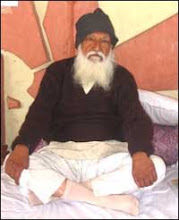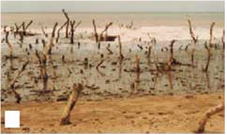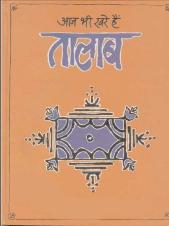Ecology and Environment
High Level Expert Group on the Bhagirathi river lacks required expertise
Posted on 28 Aug, 2008 10:05 PMAll is not well with the High Level Expert Group (HLEG) constituted on an order of the Government of India to determine the flow required to keep the Bhagirathi river 'alive and to ensure perennial environmental flow in the river'. It may be recalled that on June 30, 2008 the Government of India committed itself to "suitably ensure perennial environmental flow in all stretches of river Bhagirathi."This commitment was made in response to a representation of the Alumini Association of IIT- Kanpur to the Prime Minister of India requesting his intervention in the fast-unto-death undertaken by Dr. G.D. Agrawal , a former Dean of IIT-Kanpur -- to ensure the natural and uninterrupted flow of the Bhagirathi river between Gangotri and Dharasu (Uttarkashi). Subsequently the Ministry of Power, GoI, directed Shri R.S. Sharma, Chairman & Managing Director of NTPC, to constitute a high level expert group. The biggest problem with the HLEG is that it lacks the necessary scientific expertise to comprehensively address the issue. In a letter to Shri R.S. Sharma, rejecting his invitation to be a member of the HLEG, Dr G.D. Agrawal wrote, "Several members of the HLEG as constituted (including its Chairman) fall extremely short on any sort of expertise on river ecology and environmental flows...The commitment of most proposed members towards conservation of Bhagirathi Gangaji as the mother of India's faith, unity and culture is also questionable and I cannot afford to provide credibility to its deliberations and conclusions by being an ordinary member of the group."
Drying of Lake Faguibine, Mali:Report by UNEP
Posted on 14 Aug, 2008 09:30 AMHome to more than 13 million people, Mali stretches from the Sahara Desert in the north to the semiarid grassland known as the Sahel in the south.
KRAPAVIS:Reviving "Orans" physically and conceptually
Posted on 13 Aug, 2008 04:39 AMOrans are local micro bio-diversity reserves- community conserved areas (CCAs) harboring the shrine of a local goddess or deity. Also known as Dev-banis, these local forests vary in size from a hundred to five hundred bighas (about hundred hectares). Most Orans have sources of water, either small springs or rivulets running through them or a variety of ponds and nadis in their midst.
Environmental flows discussion-From the perspective of the National Water Academy
Posted on 02 Jul, 2008 09:31 AMParineeta Dandekar's earlier post on environmental flows, triggered several responses and we have initiated a discussion forum
Anupam Mishra's books on water - Aaj Bhi Khare Hain Talaab & Rajasthan Ki Rajat Boondein
Posted on 20 Jun, 2008 06:40 AMShri Anupam Mishra, Gandhian and environmentalist is a remarkable person. He lays no claim to copyright for his own books and (similiar to open source software) it has increased the dissemination of his message. During a recent visit to his office at Gandhi Peace Foundation in New Delhi, he showed several different editions of "Aaj Bhi Khare Hai Talaab" brought out by all kinds of individuals and publishers across the country. He recounts the story of how a impoverished young person was inspired to translate it into Punjabi and get it published.
Latest from AAQ and discussion forum
Posted on 17 Jun, 2008 09:40 AMWould you throw your lot in with cloud seeding, or have ideas regarding conservation and regulated usage? Feel free to join in and have your say, access the Drought Mitigation Discussion here
Invitation for joining URAN PSI group
Posted on 18 May, 2008 10:48 PMSeveral threats have emerged in recent years to the pristine Himalayan rivers of Uttarakhand. These include: (i) the proposed construction of 220 dams (ii) the drying up of rain fed rivers due to deforestation and deforestation of their catchments (iii) release of untreated sewage from river side towns and habitations and (iv) illegal sand mining of river beds.
Prof.G. D. Agrawal's satyagraha against the construction of dams on the Bhagirathi River
Posted on 17 May, 2008 09:08 AM
Pained by the unrelenting destruction of the Ganga river, especially by a series of dams in its upper reaches, Dr G.D. Agrawal, India's pre-eminent environmental quality scientist and a legendary Professor (and HoD) of Civil & Environmental Engineering at IIT-Kanpur. (Access:Biography Sketch Here) has decided to go on a fast-unto-death to oppose its continuing desecration. His conviction that we are staring at an unprecedented ecological and cultural catastrophe comes from his powerfully logical mind. Critique on proposed dams on Bhagirathi River. Access here: Critique on Dams
Environmental flows for Indian rivers:Need for a discussion to consider the health of the riverine ecosystems
Posted on 24 Apr, 2008 11:58 PMIndia is facing a water crisis in nearly all the sectors. Fortunately or unfortunately, measures taken by the related authorities to combat the crisis often depends on the amount of 'noise' made by the relevant stakeholders. It is no wonder then, that the urban India, and especially the rich and the powerful in urban India, seldom have to face problems related to water scarcity, water quality or the sheer inequity in distribution. On the other hand, weaker the stakeholder, more severe are his ( rather 'her') problems. Marginal farmers, tail enders in a canal network, rural and urban poor, especially children and women, stand testimony to this situation. We all agree to this, right? 
Godavari delta, destruction of mangroves
But aren't we forgetting the the weakest, and in some ways, the strongest, of all the stakeholders? How about the ecosystem of the river itself??
Resources on Polavaram (Indira Sagar) dam
Posted on 30 Jan, 2008 02:06 AMThe Polavaram project on the river Godavari in AP is in the news due to the rejection of the evironmental impact assessment and the subsequent stay on the rejection by the court. We have put together a page with resources on the Polavaram dam project for the Water Conflicts section. Click here





